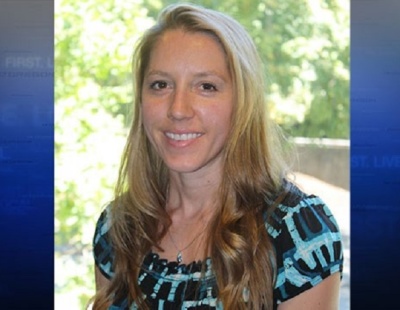Christian University Illegally Discriminated Against Unmarried Pregnant Instructor, Federal Court Rules

A former assistant professor at Northwest Christian University in Oregon, who sued the school for $650,000 arguing that she was fired for getting pregnant out of wedlock, will get her day in court after a federal judge ruled last Thursday that the university engaged in illegal discrimination based on marital status.
Prior to her firing in 2015, Coty Richardson, the professor, had worked at the Christian school as an instructor in exercise science for about four years. She explained that when she got pregnant in early 2015 she had no immediate plans to marry the father of her unborn child, who lived in Seattle, Washington at the time.
According to the lawsuit, when Richardson told her supervisors that she was pregnant, she was instructed to either marry her partner of 12 years immediately, declare the pregnancy a mistake, or end the relationship. She was fired after she refused.
Last Thursday's ruling by Judge Ann Aiken is expected to place a spotlight on the issue of how much leeway a religious college has in enforcing its religious teachings.
The university had urged Aiken to dismiss the entire case based on its First Amendment rights to religious freedom. Those rights, the university argued, include the "ministerial exception," which bars federal courts from intervening in disputes over members of the clergy and some other employees of religious institutions.
The exception was upheld by the Supreme Court in 2012 which noted that: "As soon as the denomination makes its point that it counts an employee as a 'minister,' within its internal definition, that is probably the end of the case. And the employee could be anyone from the congregational leader, on down to any worker considered to be advancing the religious mission."
Judge Aiken ruled that the ministerial exception did not apply in Richardson's case.
"First, plaintiff's title, assistant professor of exercise science, was secular," the judge wrote. "Second, plaintiff did not undergo any specialized religious training before assuming her position. Third, although there is ample evidence plaintiff held herself out as a Christian, there is no evidence she held herself out as a minister.
"... any religious function was wholly secondary to her secular role: she was not tasked with performing any religious instruction and she was charged with no religious duties such as taking students to chapel or leading them in prayer. If plaintiff was a minister, it is hard to see how any teacher at a religious school would fall outside the exception," Aiken added.
Judge Aiken ruled in Richardson's favor based on evidence that she was treated differently from others because she was unmarried. She also noted that while the school argues that it was simply enforcing moral standards, Richardson's firing could have resulted from more than just those standards.
"A reasonable juror could conclude from that evidence that defendant is attempting in good faith to prevent all faculty and staff from having sex outside of marriage. But plaintiff has pointed to at least three pieces of evidence from which a juror could infer pretext. First, a juror could infer that defendant's chosen enforcement method will necessarily and obviously lead to disproportionate enforcement against pregnant women," she wrote.
"Second, in the correspondence leading up to plaintiff's termination, defendant expressed concern that plaintiff's pregnancy, once visible, would make it obvious to others that she, an unmarried woman, was sexually active.
"Third, defendant knew plaintiff was unmarried and a mother of two children when it hired her — yet it only inquired about her compliance with the extramarital sex/cohabitation policy when she disclosed her pregnancy. A juror could conclude those pieces of evidence show defendant was less concerned about its employees having sex outside of marriage and more concerned about people knowing its employees were having sex outside of marriage — a concern that arguably amounts to animus against pregnant women," Aiken argued.
The case is now expected to go to trial over damages in the marital discrimination case and to resolve the pregnancy discrimination charges.
Richardson's Lawyer Daniel Kalish told Inside Higher Ed that that he is trying to draw attention to his client's case through a petition seeking to get her reinstated and send a message to the university that "It's NOT OK to fire a woman for being pregnant!"
The Christian Post reached out to Northwest Christian University for comment on Thursday and Pat Walsh, senior director of marketing and communications said: "We are reviewing the judge's decision and we're going to see what the next steps are."




























